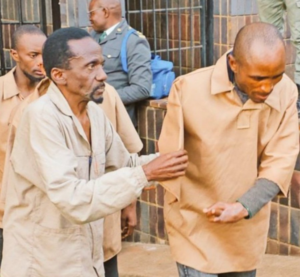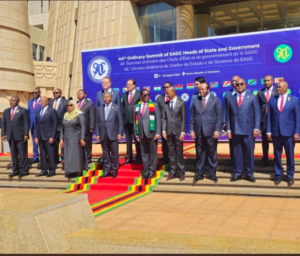MNANGAGWA’S POWER GRAB: A PATH TO INEFFECTIVENESS

In an era where democratic principles and effective governance are paramount, the recent actions of Zimbabwean President Emmerson Mnangagwa raise critical questions about the health of democracy in the nation. Veritas, an independent think-tank specializing in legal and parliamentary affairs, has voiced serious concerns regarding Mnangagwa’s approach to power consolidation. These misgivings focus on the roles and duties that the President has assigned to himself and his vice-presidents, spotlighting a worrying trend towards centralization of authority.
Mnangagwa, who rose to power in the wake of Robert Mugabe’s long tenure, seems to be charting a course that might undermine the very foundations of effective governance. By accumulating numerous roles and responsibilities, traditionally distributed across different offices and branches of government, he is effectively creating a bottleneck in decision-making processes. This concentration of power in the hands of a few, or in this case, in the hands of one individual, poses a significant risk to the administrative efficiency and democratic integrity of Zimbabwe.
The implications of this centralization are far-reaching. On one hand, it jeopardizes the checks and balances essential for a healthy democratic system. With more power concentrated in the presidency, the potential for abuse increases, and the avenues for accountability diminish. This shift could lead to decisions that are not only unchallenged but also potentially detrimental to the wider interests of the Zimbabwean populace.
Moreover, this approach could stifle innovation and responsiveness in governance. In a dynamic global environment, where governments need to be agile and responsive to changing circumstances, concentrating power at the top could slow down decision-making processes. This could leave Zimbabwe ill-equipped to handle emerging challenges and opportunities, both domestically and internationally.
Furthermore, the centralization of power often leads to an erosion of public trust in government. When power is perceived to be concentrated in the hands of a few, citizens may feel disenfranchised and disconnected from the political process. This disenchantment can lead to apathy or, in worse cases, social unrest.
In conclusion, while Mnangagwa’s consolidation of power might offer short-term gains in terms of control and decision-making, the long-term effects could be detrimental to Zimbabwe’s democratic health and governance effectiveness. It is imperative for the leadership in Zimbabwe to heed the warnings of entities like Veritas and strive for a more balanced and distributed system of governance, one that upholds democratic principles and ensures the effective administration of the nation.




